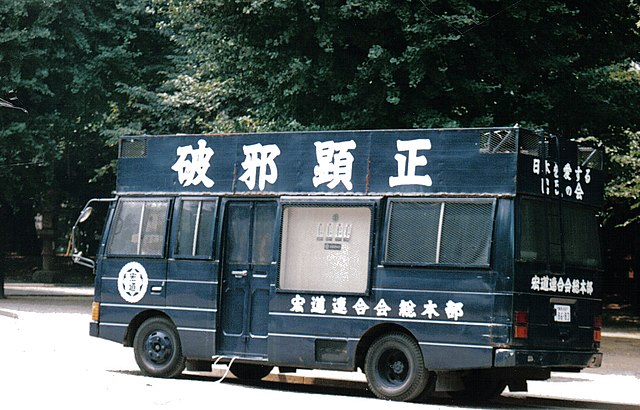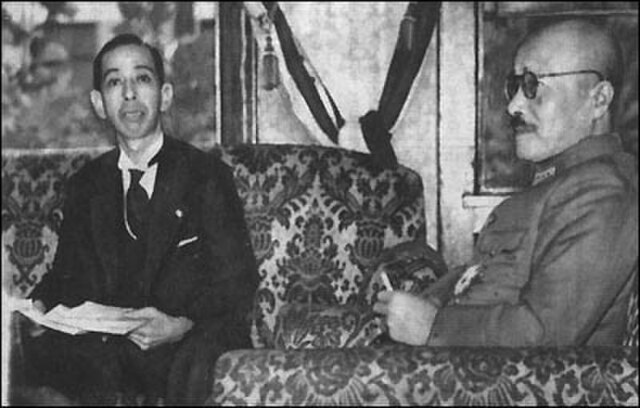Uyoku dantai refers to Japanese ultranationalist far-right activists, provocateurs, and internet trolls often organized in groups. In 1996 and 2013, the National Police Agency estimated that there were over 1,000 right-wing groups in Japan with about 100,000 members in total.
An uyoku gaisensha passing two Tokyo Metropolitan Police Department police buses
A gaisensha driving around the street at the Yasukuni Shrine on August 15, the V-J Day
Another example of an uyoku gaisensha, again in front of the Yasukuni Shrine
Uyoku bus parked on the grounds of Yasukuni Shrine
Japanese nationalism is a form of nationalism that asserts the belief that the Japanese are a monolithic nation with a single immutable culture, and promotes the cultural unity of the Japanese. Over the last two centuries, it has encompassed a broad range of ideas and sentiments which have been harbored by the Japanese people in relation to their native country, its cultural nature, its political system, and its historical destiny. It is useful to distinguish Japanese cultural nationalism from political or state nationalism, since many forms of cultural nationalism, such as those which are associated with folkloric studies, have been hostile to state-fostered nationalism.
Naval ensign of the battleship Mikasa
Hideki Tōjō (right) and Nobusuke Kishi, October 1943
Bow of the battleship Mikasa







